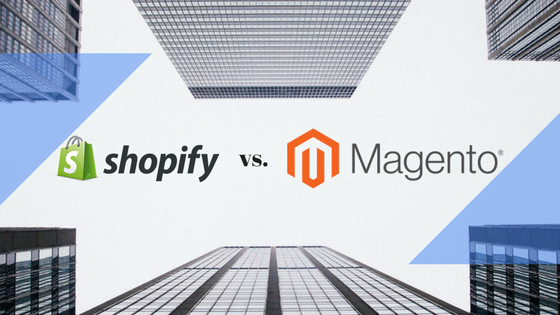If you want to sell online, you will need an e-commerce site. Unless you have a large budget and a very specific need, you will certainly opt for a preconceived and (almost) ready-to-use e-commerce solution.
However, these solutions are more and more numerous and always offer more features.
Which e-commerce solution to choose? Or rather, how to choose your e-commerce solution?
The choice of an e-commerce solution for a merchant is certainly the most important choice he has to make. Indeed, each e-commerce solution is unique and offers features and a very particular operation.
So do not neglect this step especially at the risk of finding yourself stuck later and having to spend a lot of money to adapt if it is not necessary to stop the online activity.
You will learn:
- The specs of each e-commerce solution;
- The strengths and weaknesses of each e-commerce solution.
In this article, we chose to test for you two well-known solutions: Shopify and Magento.
We will test these 2 because they cover all the needs you may have. In addition, they have proven themselves: they are robust and leaders in a very special niche.
Shopify
Shopify was launched in 2006. This solution is the darling of the media of the Channel and across the Atlantic, and it is not by chance.
The idea of Shopify is to provide an exceptional product and help merchants to success. It’s a little Nespresso e-commerce solution if you prefer. At least, that’s the facade. Let’s clear a little to see!
Shopify does not offer a free download but subscriptions per month. 3 formulas are proposed: basic, professional and unlimited. Each formula is already hosted by Shopify.
Strong points:
- A solution at the height of its ads and well optimized for SEO
- A responsive and efficient support team
- An e-commerce spirit close to preserved merchants
Weak points:
- The price (but everything good must cost something)
- The solution is already hosted
- It doesn’t support many different languages
Magento
Magento was launched in 2008. The idea of Magento, from the outset, was to establish itself as the “robust” solution of the market and therefore as the choice of major retailers and large accounts.
This ambition will be reinforced by the takeover of Magento by eBay in 2011, offering it credits and potential development (almost) unlimited in principle.
Magento offers three different “formulas”: Magento Go, Magento Community and Magento Enterprise.
Magento Go is the solution for small businesses. Your shop will be hosted by Magento, so you do not have to worry about hosting or installation.
Magento Community is Open Source and you can download it for free. After that, you can buy modules to customize your shop on MagentoCommerce.
Magento Enterprise is the version for large accounts, with a dedicated Magento support team. You will also have access to advanced customization possibilities for your e-commerce. Finally, you will have a very robust CMS (Content Management System).
Strong points:
- Robust solution for large accounts (holds the charge)
- eBay buyout and integration with eBay and unlimited development credits
- CMS pushed and complete
Weak points:
- The pricing is quite high
- eBay buyout and the likely loss of the “e-commerce spirit”
- Not many languages are supported




